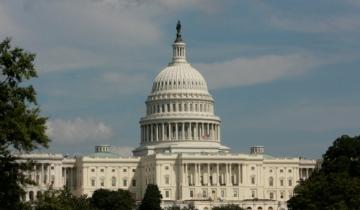On April 23, 2024, the Federal Trade Commission (FTC) voted in favor of a revised final rule prohibiting noncompete agreements for all employees, including executives. If the rule survives legal challenges, it will go into effect 120 days after it is published in the Federal Register.
Per the FTC’s press release, the rule:
- Bans new noncompetes with all workers, including senior executives after the effective date.
- Specifically, the final rule provides that it is an unfair method of competition—and therefore a violation of Section 5 of the FTC Act—for employers to enter into noncompetes with workers after the effective date.
- For existing noncompetes, the final rule adopts a different approach for senior executives than for other workers. For senior executives, existing noncompetes can remain in force. Existing noncompetes with workers other than senior executives are not enforceable after the effective date of the final rule.
- Fewer than 1% of workers are estimated to be senior executives under the final rule.
- Specifically, the final rule defines the term “senior executive” to refer to workers earning more than $151,164 annually who are in a “policy-making position.”
The rule’s expansive definition of a noncompete clause goes beyond the traditional contractual agreement to include any workplace policy, whether oral or written, that inhibits, penalizes, or functions in a manner that would prevent seeking or accepting work or starting a business after the conclusion of their employment. Although not specified in the rules, some legal pundits speculate that this definition may also be interpreted to extend to training repayment agreement provisions.
Notice to Employees Requirement
The final rule will require employers to provide, on the effective date, a notice informing employees that any existing noncompete agreement they may be subject to is no longer enforceable. Sample safe harbor language for this notification is provided in the rule (see page 566) as follows:
“A new rule enforced by the Federal Trade Commission makes it unlawful for us to enforce a non-compete clause. As of [DATE EMPLOYERCHOOSES BUT NO LATER THAN EFFECTIVE DATE OF THE FINAL RULE], [EMPLOYER NAME] will not enforce any non-compete clause against you. This means that as of [DATE EMPLOYER CHOOSES BUT NO LATER THAN EFFECTIVE DATE OF THE FINAL RULE]:
- You may seek or accept a job with any company or any person- even if they compete with [EMPLOYER NAME].
- You may run your own business- even if it competes with [EMPLOYER NAME].
- You may compete with [EMPLOYER NAME] following your employment with [EMPLOYER NAME].”
The FTC's new rule does not affect any other terms or conditions of your employment. Model notices in certain languages other than English, including Spanish, Chinese, Arabic, Vietnamese, Tagalog, and Korean, as well as other employer resources, are available here.
Next Steps for Employers
Once again, employers will need to play the waiting game, as the rules are scheduled to become effective 120 days after publication in the Federal Register (the “effective date”), which has yet to occur. However, the rules are already facing legal challenges in at least one federal jurisdiction (Texas) and potentially additional challenges in other jurisdictions.
MRA recommends reviewing existing noncompete agreements with legal counsel and preparing employee notifications should the court challenges prove unsuccessful. However, given that the rule is not yet in effect, it is not recommended to send out the notifications at this time.






